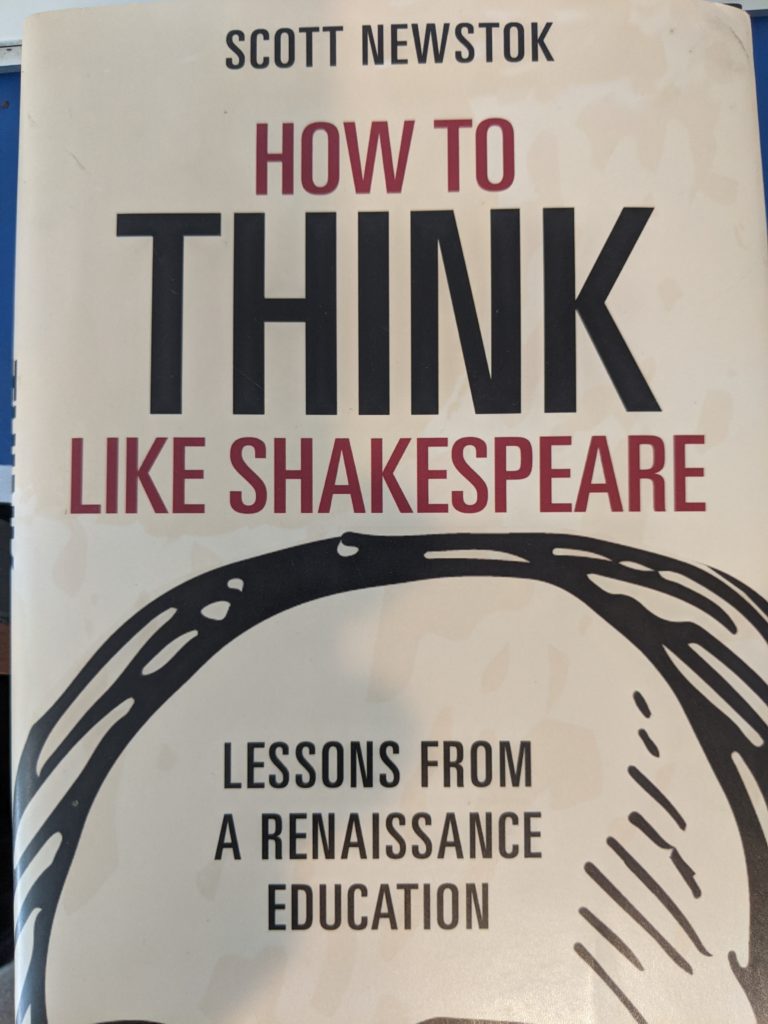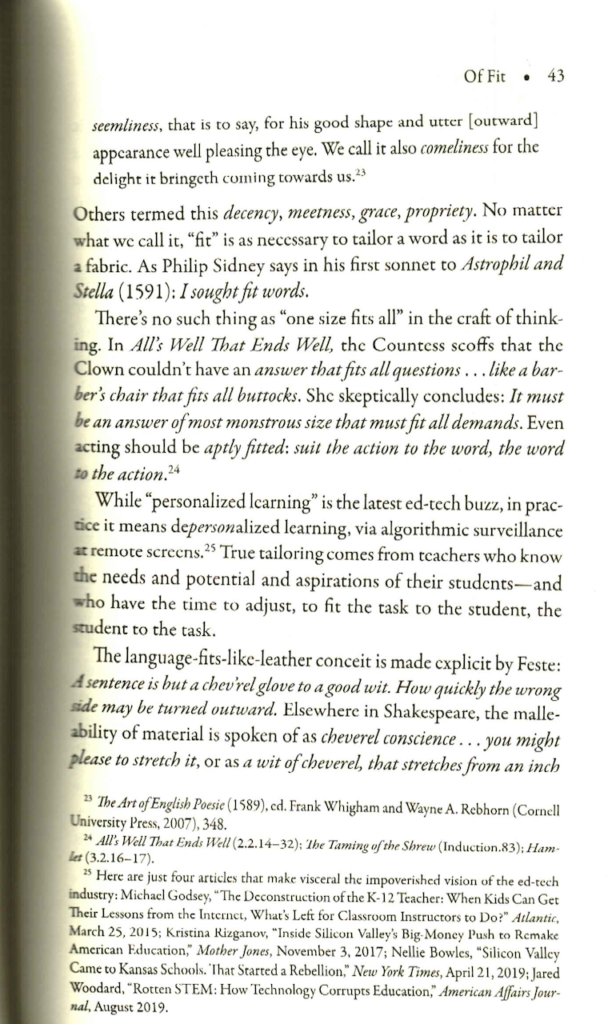Ok, let’s see how this goes.
I don’t think have to reintroduce Scott Newstok every time I write about him. Back in 2008 when I was just getting started he sent me a copy of his book on Kenneth Burke and my honest response was, “I don’t know who that is.”
My ignorance of things at Scott’s academic level has not turned him off, however, and he’s continued to keep in touch and send me his work over the years, including Wayward Macbeth a few years later.
Which leads me to his latest, How To Think Like Shakespeare, which started out as a convocation address he gave and is now available in book form. I actually received the book back in April and am ashamed that I have only now gotten around to writing about it.

There’s a reason for that. I have tried and tried to complete this book, and I hate to say that I can’t. It’s not for the source material or the subject. I love the idea – see the linked post above for how I raved about the idea when I originally heard it.
My problem is with the book itself. Everbody’s life is busy. During pandemic, doubly so. So we all find ways to organize our time, our priorities and our lives. For years I had a commute to work that lasted about an hour and a half each way and I learned to live on audio books. Used to go through 50+ of them a year. On the flip side, my “Sit down with an actual paper book” time has approached zero over the years. When I was in the car I had no choice what to do with my time. When I’m home and find myself with time to read a book I am plagued with thoughts of, “What other things do you need to be doing right now?” It is very, very hard to find the attention span. So if a book does not hook me right away and become something I simply can’t put down, I’m going to struggle.
What’s killing me here is the editorial structure of the book. Literally every single page is loaded with footnotes, call outs, quotes, italicized and/or emphasized words … and probably a few other flow-breaking constructs I’ve forgotten about. I tried to scan a page to give an example:

Imagine all the pages like this. Maybe it’s just what my reading style has become, maybe I’ve developed focus or attention issues as I’ve gotten older, but I simply can’t pick up any momentum reading like this. Every time the font changes or the paragraph breaks unexpectedly that voice in my head says “Whoa hey wait we just got sidetracked” and I’m left with each page feeling like a jumble of separate thoughts rather than a complete whole.
If you’re used to reading books like this, don’t let me stop you. I still love the topic, as shown by my post from a few years ago. I’m just not the best person, for whatever reason, to offer a review. My apologies to Scott and his publisher.

Years ago, you commented on my husband’s blog, Phil Schaefer aka Pater Familias, about revenge in Shakespeare’s plays. I’m right now performing a labor of love and
printing out all 10 and 1/2 years of his blog. We had wanted to have it printed out, but
there was a transfer from one company to another, and I won’t name names, but apparently, in this process, the text was garbled. I’m trying to deal with that, but in the meanwhile, I’m just biting the bullet and saving his blog from possible future misfortune. I feel it really is an encyclopedic guide to the terrain of his incredible mind
and wide-ranging interests. BUT, TO THE POINT, I’ve started reading your blog only now–unbelievable, right? especially since I’ve been focused on Shakespeare for years in my own work. I’m a playwright and have written three different plays addressing the issue of: What might Shakespeare really have been like? Not published yet, nor fully produced, but all three were performed as staged readings, one each night, at The Players Club in NYC, followed by a rave review in The Shakespeare Newsletter.
The first one was presented at The Utah Shakespeare Festival. Would you like to see any of my work? My email is below. Thanks. Mary Jane Schaefer
My website is: http://www.schaeferonshakespeare.squarespace.com